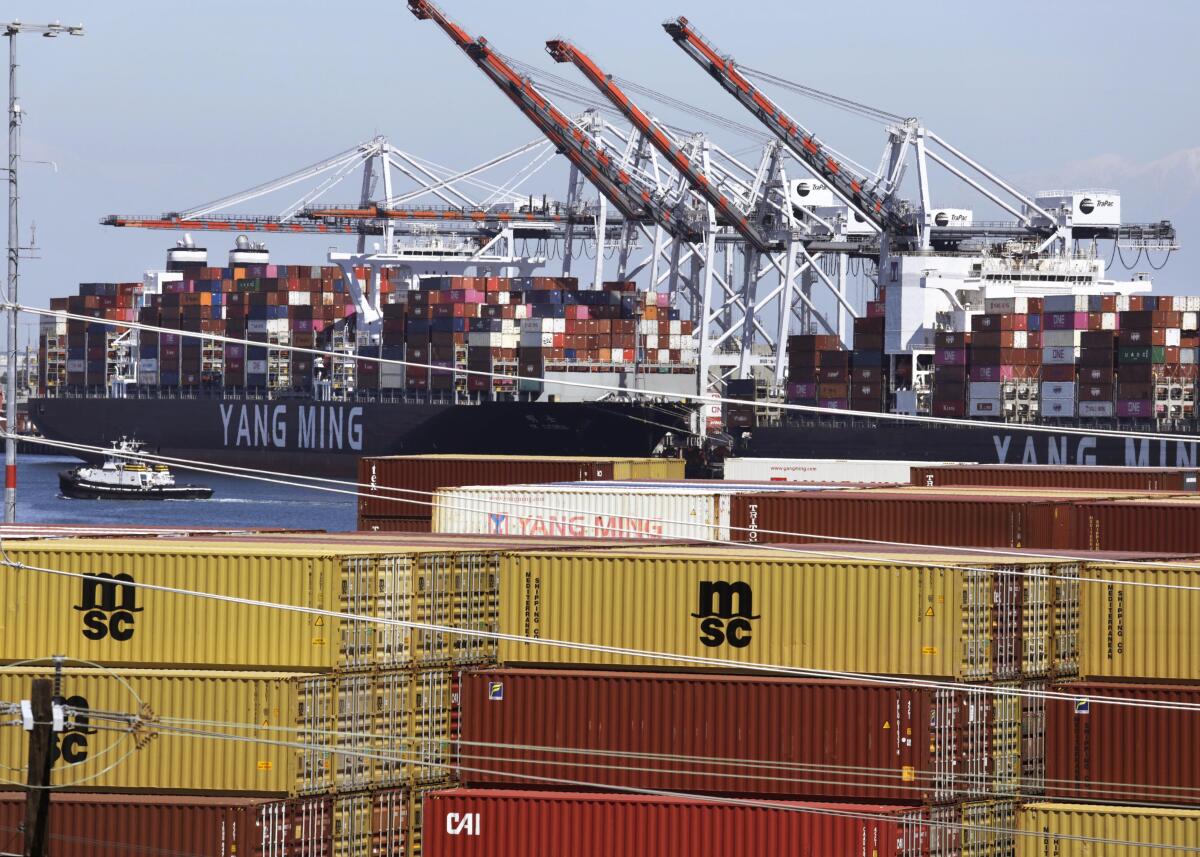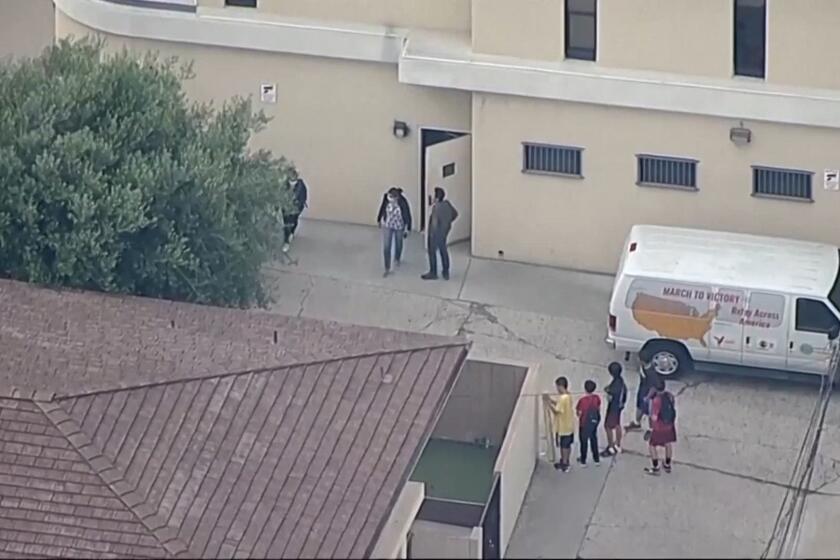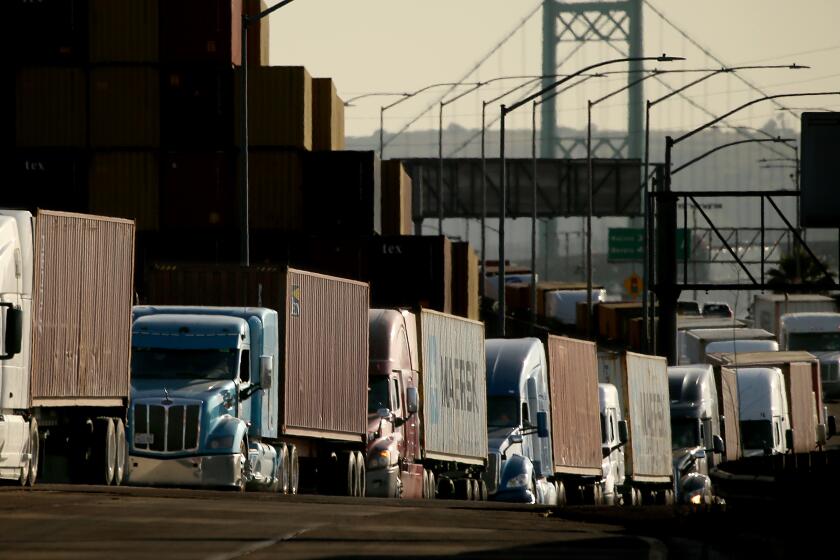West Coast dockworkers, employers reach tentative contract agreement

West Coast dockworkers have reached a tentative deal with employers, the two sides announced Wednesday, potentially ending months of port labor strife that could have threatened the nation’s economic outlook.
In a joint statement, the International Longshore and Warehouse Union and the Pacific Maritime Assn., which represents shipping lines and terminal operators, said the new six-year deal covers workers at all 29 West Coast ports but did not release further details. The agreement is pending ratification by the union and employers.
The previous contract covering 22,000 workers expired on June 30. Union members have been working without a contract since then. Negotiations snagged over wages and benefits after reaching an agreement over automation.
As the high-stakes talks continued, ports at Los Angeles, Long Beach and other West Coast harbors experienced delays and intermittent disruptions because of worker shortages that the employers said were intentional labor actions by the union. Anxiety rippled through retailers, manufacturers and other importers, who called on the White House to intervene.
The Los Angeles and Long Beach ports, which combined handle nearly 40% of U.S. imports from Asia, lost business as some shippers sent cargo through East and Gulf coast ports.
Texas Gov. Greg Abbott said Wednesday that migrants had been transported from Texas to Los Angeles and dropped off at Union Station.
“We are pleased to have reached an agreement that recognizes the heroic efforts and personal sacrifices of the ILWU workforce in keeping our ports operating,” PMA President James McKenna and ILWU President Willie Adams said in the release. “We are also pleased to turn our full attention back to the operation of the West Coast Ports.
The tentative agreement “brings the stability and confidence that customers have been seeking,” said Gene Seroka, executive director of the Port of Los Angeles, the nation’s largest cargo container port. “We look forward to collaborating with our partners in a renewed effort to bring back cargo and demonstrate why Los Angeles is the first choice for Trans-Pacific trade.”
International labor economist Jock O’Connell of Beacon Economics called the proposed deal “a very positive sign for the West Coast ports and for everyone who sends their cargo through them.”
“The reputation of the West Coast ports as reliable conduits for Asian trade will be less tarnished, but they still have a long way to go in assuring shippers and customers, the importers and exporters,” in the wake of recent disruptions that caused significant delays in the movement of goods, he said. O’Connell said the ratification process could take several weeks, adding: “It’s important to emphasize that this is not finished.”
Acting U.S. Secretary of Labor Julie Su, who met with both sides in recent days, said the agreement demonstrated “once again that collective bargaining — though sometimes difficult — works.”
Southern California dockworkers disrupted the Los Angeles and Long Beach ports Friday after contract talks deteriorated in recent days.
“Thanks to the hard work and perseverance of the leadership of the ILWU and the PMA, the tentative agreement delivers important stability for workers, for employers and for our country’s supply chain,” Su said in a news release.
The PMA said Su played a “key role” in the negotiations.
President Biden hailed Su’s role in ending “a long and sometimes acrimonious negotiation” and congratulated port workers “who will finally get the pay, benefits and quality of life they deserve.”
Mayor Karen Bass said the agreement was “a win for the working people of our City,” noting that the Los Angeles port generates economic activity that supports 1 in 15 jobs in L.A.
More to Read
Sign up for Essential California
The most important California stories and recommendations in your inbox every morning.
You may occasionally receive promotional content from the Los Angeles Times.














